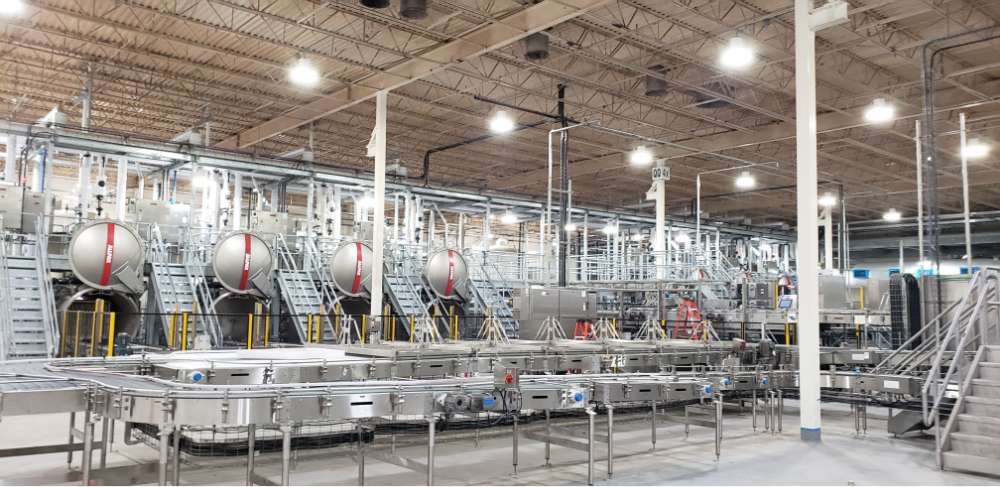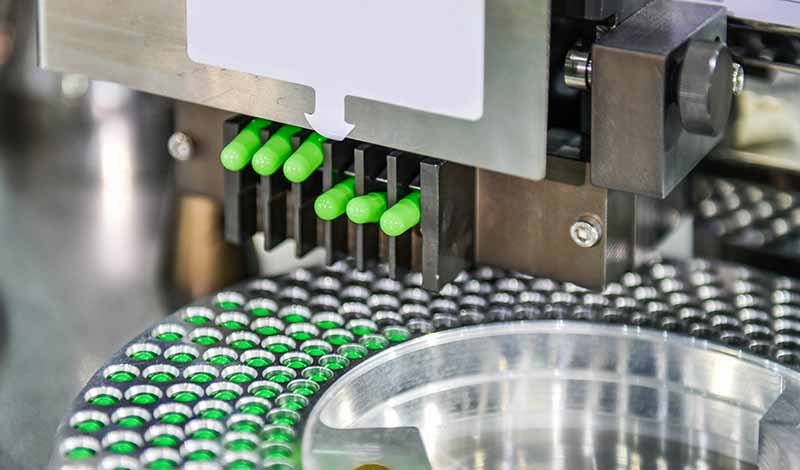
Good Manufacturing Practices (GMP) refer to a system of guidelines that dictate how products should be produced to ensure their quality and safety. These practices are particularly crucial in industries such as pharmaceuticals and medical devices where product integrity directly impacts human health.
At PEC, we not only understand the importance of GMP, but we consider it a critical cornerstone of our operational philosophy. Rigorous adherence to these practices gives us a distinctive competitive advantage. It is not merely a regulatory obligation, but a key driver of our quality, reliability, and ultimately, customer satisfaction.
To us, GMP are not just a set of guidelines; they are an integral part of our corporate culture and business ethos. They help us deliver the commitment we make to our customers every day – to provide services of unparalleled quality and safety. This guide provides an in-depth look at how GMP are not just followed at PEC, but actively embodied and woven into our business strategy.
GMP is composed of five main components: Quality Management, Proper Facilities and Equipment, Correct Documentation, Suitable Personnel, and Product Testing. Each of these components plays a significant role in ensuring product quality and safety.
For instance, having suitable personnel ensures that every individual involved in the production process is adequately trained and competent, thereby minimizing errors and enhancing product integrity.
Current Good Manufacturing Practices (cGMP) are enforced by regulatory bodies such as the Food and Drug Administration (FDA) in the United States and have global applicability. These practices aim to ensure that drug products and other commodities are produced consistently and controlled to the quality standards appropriate for their intended use. The scope of GMPs includes personnel, premises, process validation/verification, and equipment qualification.
Additionally, a system of documentation must be maintained to ensure compliance with relevant regulations and specifications. This comprehensive approach ensures that products are safe for both consumers and the environment.
Good Manufacturing Practices encompass several critical elements, including the minimum requirements for premises, equipment, and sanitation and hygiene. These elements serve to prevent cross-contamination and ensure that products are manufactured under conditions that uphold their quality and safety.
1
Quality components are vital for successful product manufacture. This encompasses raw materials, primary materials, and other ingredients. Testing is necessary to meet regulatory specifications and requirements.
2
People are vital to GMP. Manufacturing personnel must receive proper training to uphold good standards. They should understand their role, regulations, and quality control procedures. Additionally, practicing safe work methods can minimize production risks.
3
Product processes must follow GMP standards to protect consumers from potential hazards. Monitoring and documenting all critical aspects of production ensures consistency and quality.
4
Establish procedures to maintain GMP standards in manufacturing. Include preventative measures like regular equipment calibration to reduce risks from defective products.
5
Manufacturing premises and equipment must meet specific regulatory requirements. This entails proper maintenance and cleaning of production and storage areas. Additionally, premises should be designed to facilitate efficient product flow and prioritize personnel safety.

Quality control is an integral part of GMP. It involves testing products to verify their quality and ensure they meet the required standards. GMP compliance is critical in maintaining these standards and ensuring that all products are safe for consumption or use. Quality control processes should include a variety of tests on the products, including microbiological testing, physical and chemical testing, as well as sensory evaluation.
Additionally, organizations must document all production procedures and their results in order to guarantee GMP compliance and provide evidence of quality management. This includes the implementation of an internal audit program that regularly assesses areas of non-compliance and takes corrective action.
Training plays a pivotal role in GMP. A well-trained workforce is essential in upholding the quality and safety of products. At PEC, we place a high emphasis on properly training engineers to ensure that our team is well-versed with GMP and capable of delivering services that meet our client’s expectations.
PEC’s training programs are designed to ensure that our workforce is well-equipped with the latest knowledge and skills necessary to excel in their roles while adhering to the highest standards of safety and quality.
GMP Training: We conduct regular training sessions focused on Good Manufacturing Practices (GMP). These sessions cover the basics of GMP, recent updates to regulations, and how to apply these standards in day-to-day operations. We also use these sessions to reinforce the importance of GMP to product quality and safety.
Skill-Specific Training: Depending on their role within the company, employees participate in training tailored to their specific tasks. For instance, millwrights and riggers undergo specialized training that includes hands-on exercises and simulations to hone their skills and improve their efficiency.
Safety Training: Safety is a top priority at PEC. We conduct frequent safety training sessions that cover the safe use of equipment, hazard identification and mitigation, and emergency response procedures. This ensures that all our personnel can perform their tasks safely and contribute to maintaining a safe working environment.
PEC’s robust training programs ensure our team is well-equipped to deliver exceptional service while maintaining stringent safety and quality standards. They are also a testament to our commitment to fostering a culture of continuous learning and development.
In the pharmaceutical industry, cGMP is of paramount importance. Drug manufacturers must strictly adhere to these practices to ensure the quality, safety, and efficacy of drug products. Key elements that differentiate cGMP from other GxPs include process validation, reporting, records retention, and auditing.
These practices are regulated by the U.S. Food and Drug Administration (FDA) and enforced through periodic inspections. Compliance with cGMP standards is essential to maintaining a successful pharmaceutical manufacturing operation, as it helps ensure the integrity of products produced in the facility.

Given the current trends, it is likely that GMP will continue to evolve, with a greater emphasis on automation and digitalization. Industries must stay abreast of these changes and adapt accordingly to ensure continued compliance and maintain the quality and safety of their products.
At PEC, we are committed to staying ahead of the curve and adapting to these future changes to provide our clients with the best industrial services. Our team of experienced professionals provides expert advice on GMP and helps our clients implement the necessary changes for compliance.
We take pride in our commitment to providing exceptional service. We go the extra mile to create tailored and customized solutions that precisely align with the unique needs and requirements of each individual client.
Our team is dedicated to helping you stay compliant with GMP standards, ensuring that you can operate with utmost efficiency and confidence. Don’t hesitate to reach out to us today to learn more about how our expertise can benefit your business.